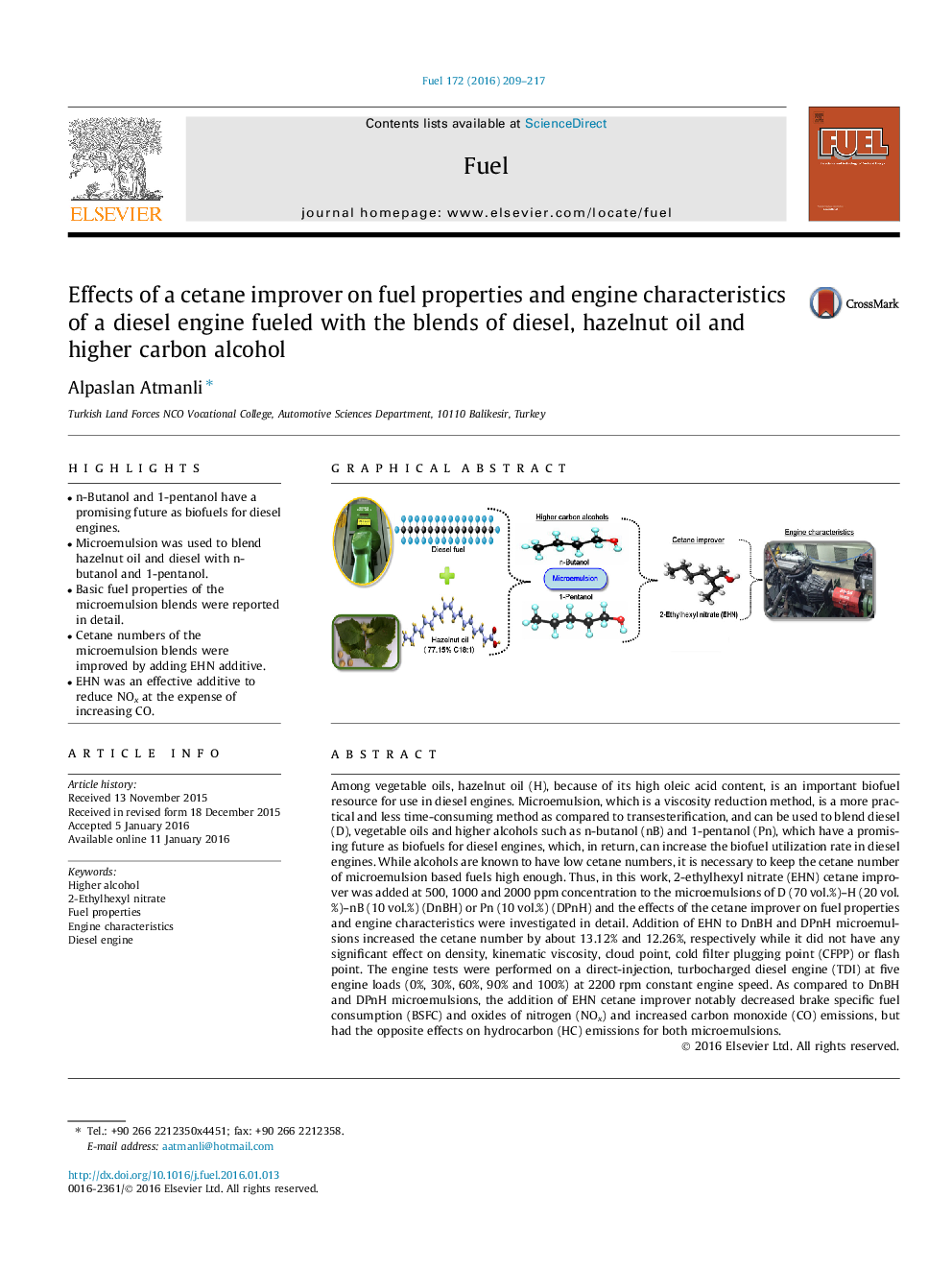| کد مقاله | کد نشریه | سال انتشار | مقاله انگلیسی | نسخه تمام متن |
|---|---|---|---|---|
| 205202 | 461100 | 2016 | 9 صفحه PDF | دانلود رایگان |
• n-Butanol and 1-pentanol have a promising future as biofuels for diesel engines.
• Microemulsion was used to blend hazelnut oil and diesel with n-butanol and 1-pentanol.
• Basic fuel properties of the microemulsion blends were reported in detail.
• Cetane numbers of the microemulsion blends were improved by adding EHN additive.
• EHN was an effective additive to reduce NOx at the expense of increasing CO.
Among vegetable oils, hazelnut oil (H), because of its high oleic acid content, is an important biofuel resource for use in diesel engines. Microemulsion, which is a viscosity reduction method, is a more practical and less time-consuming method as compared to transesterification, and can be used to blend diesel (D), vegetable oils and higher alcohols such as n-butanol (nB) and 1-pentanol (Pn), which have a promising future as biofuels for diesel engines, which, in return, can increase the biofuel utilization rate in diesel engines. While alcohols are known to have low cetane numbers, it is necessary to keep the cetane number of microemulsion based fuels high enough. Thus, in this work, 2-ethylhexyl nitrate (EHN) cetane improver was added at 500, 1000 and 2000 ppm concentration to the microemulsions of D (70 vol.%)–H (20 vol.%)–nB (10 vol.%) (DnBH) or Pn (10 vol.%) (DPnH) and the effects of the cetane improver on fuel properties and engine characteristics were investigated in detail. Addition of EHN to DnBH and DPnH microemulsions increased the cetane number by about 13.12% and 12.26%, respectively while it did not have any significant effect on density, kinematic viscosity, cloud point, cold filter plugging point (CFPP) or flash point. The engine tests were performed on a direct-injection, turbocharged diesel engine (TDI) at five engine loads (0%, 30%, 60%, 90% and 100%) at 2200 rpm constant engine speed. As compared to DnBH and DPnH microemulsions, the addition of EHN cetane improver notably decreased brake specific fuel consumption (BSFC) and oxides of nitrogen (NOx) and increased carbon monoxide (CO) emissions, but had the opposite effects on hydrocarbon (HC) emissions for both microemulsions.
Figure optionsDownload as PowerPoint slide
Journal: Fuel - Volume 172, 15 May 2016, Pages 209–217
